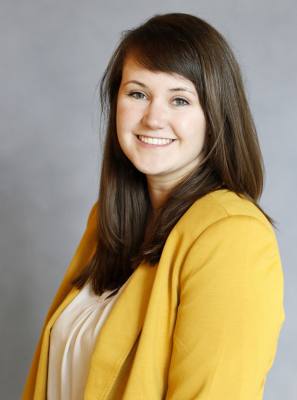Mary Jane Williams leads Family to Family Network, a Katy-area nonprofit that helps families of children with disabilities navigate the complex web of services in the education system. One challenge to parents and guardians of a child with a disability is how to plan for life after high school, or transition planning, she said. Just like any other young adult, there are postgrad options for these individuals to attend a university, college or vocational training or apply for a job. This Q&A has been edited for length and clarity.
What higher education options are available for those with disabilities?
There are a lot of opportunities for kids with disabilities to go to college. Texas A&M and University of Texas-Austin both have programs to train adults with disabilities to become attendants for other adults with disabilities. Colleges also have disability services for those who need accommodations.
But then there’s colleges around the U.S. that don’t require as much in the credit department. You might be able to go to a four-year university in another state.
If you can’t get into a four-year university, you can still go on to junior college in Texas. Another option is the Texas Workforce Vocational Rehabilitation, which has pre-employment training services for families. Katy ISD has a great work-based learning program.
What are the benefits for pursuing postsecondary education?
Just like any other person, if you get a postsecondary education, it at least shows that you’ve gone on and you’ve succeeded somewhere, and it gives you the opportunity to get a better job.
If we can get kids with disabilities into employment, it reduces their reliance on Social Security. If we can get in kids into jobs where they’re getting benefits, then that saves us all as taxpayers.
What I really want for the general public to understand is in the Greater Houston area there are a ton of kids with disabilities out there, and think about what’s going to happen to them when they graduate from high school. Employment is a pathway out of poverty.
What advice do you have for planning postgraduation life?
The big thing in the transition planning process is to really look at what your kids’ strengths and interests are. Start making a plan and help your kid take courses of study that sort of align with what they’re going to do or what they’re going to need to have a job.
When my son, who is on the autism spectrum, was young, it used to drive me crazy because we had to stop in the grocery store for him to line things up and clean stuff off the floor. But now that’s a skill that he has. And he goes to work at Walgreens, and he can sort stuff and he can put stuff in any order; it’s that obsession that became a job.
When should this planning begin?
I was doing a training at a preschool and getting those families to look at their kids and recognize that, yes, your child has a disability, but you’ve got to start planning for what’s going to happen when they graduate from high school. Families need to prepare financially for kids with disabilities to go to college just like you would do for a child without a disability as the programs on college campuses are not free.
If a child has an Individual Education Program, schools are supposed to start talking about transitioning and what they want to do when they grow up at age 14 to map out courses and credits.
What challenges do students with disabilities face in higher education?
I think the biggest challenge for those students is the fact that when you go on to postsecondary education, there’s no guarantees for accommodations. You need to really prepare for that. I always advise families if their kid is going on to postsecondary education to go look and see what accommodations he or she will need. Go meet with disability services and find out exactly what testing is required.
And then as a young adult, you have to be able to self-advocate for those accommodations. It’s good for those kids with disabilities to have goals around being able to speak up for themselves, being able to advocate for accommodations in their high school classes because they’re going to have to do that in college. Colleges really don’t want to hear from mom and dad.
Family to Family Network
713-466-6304
www.familytofamilynetwork.org









